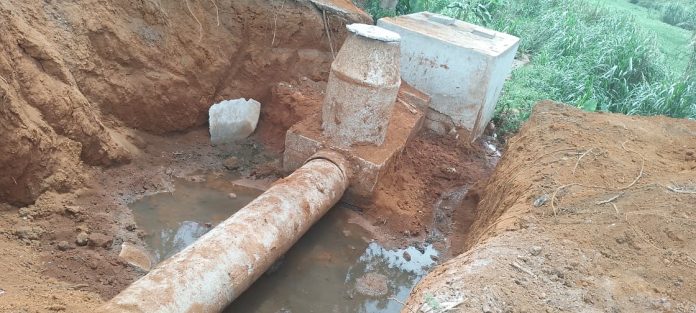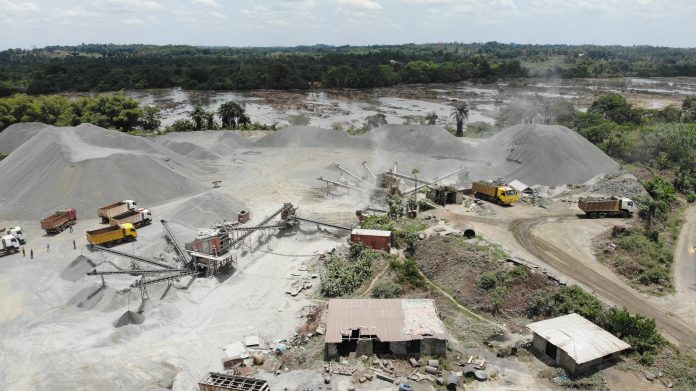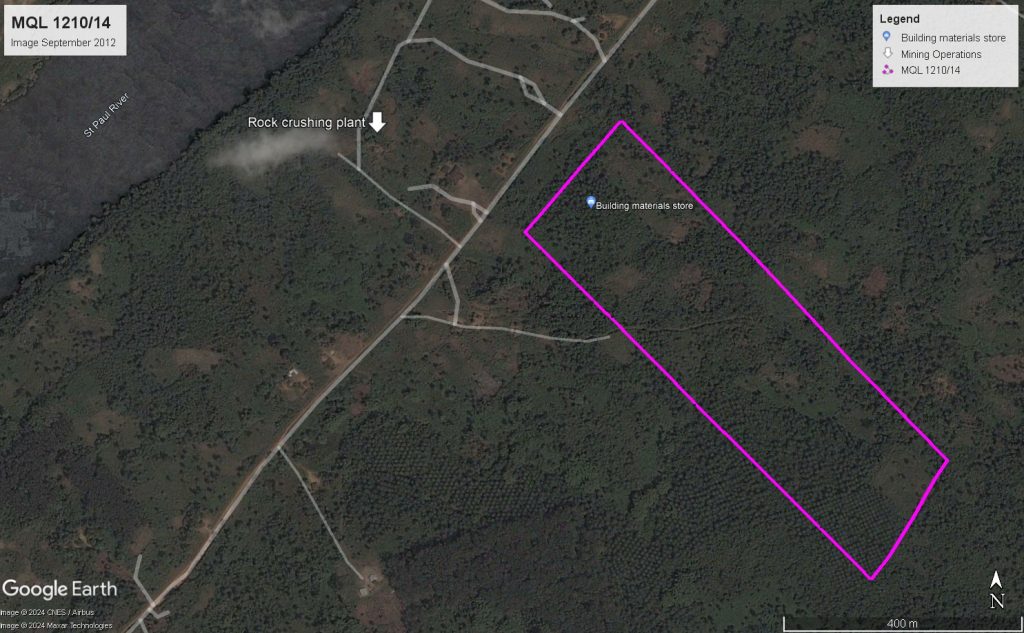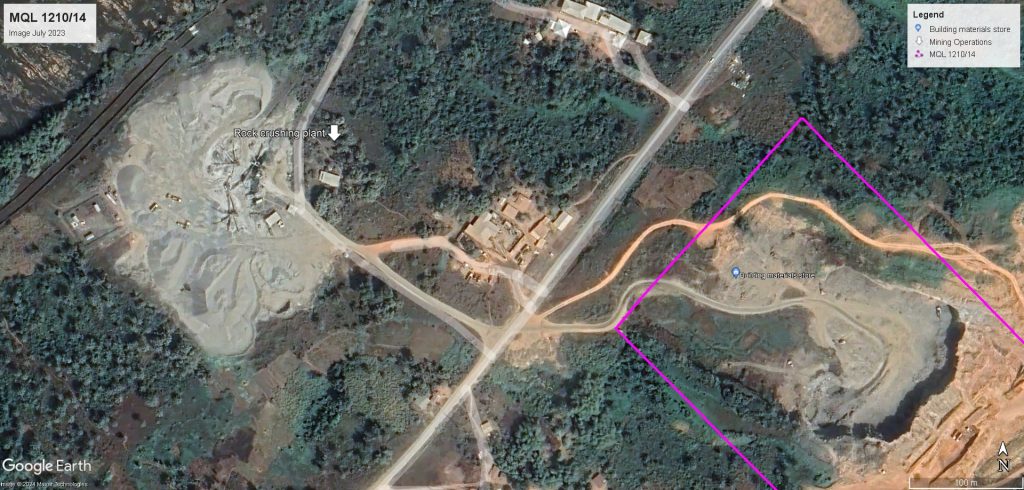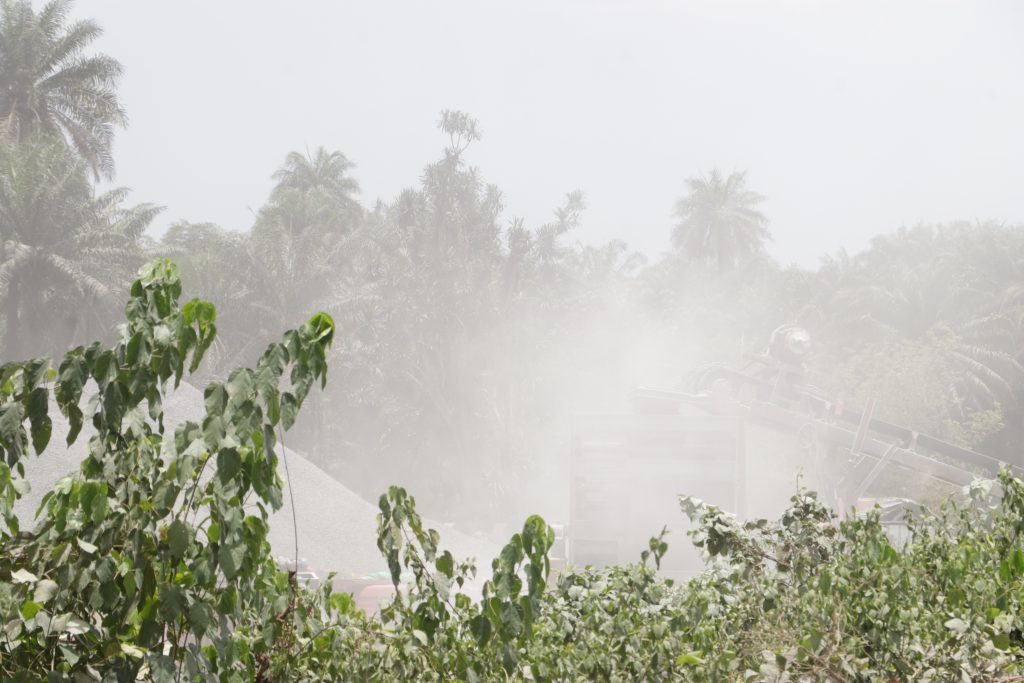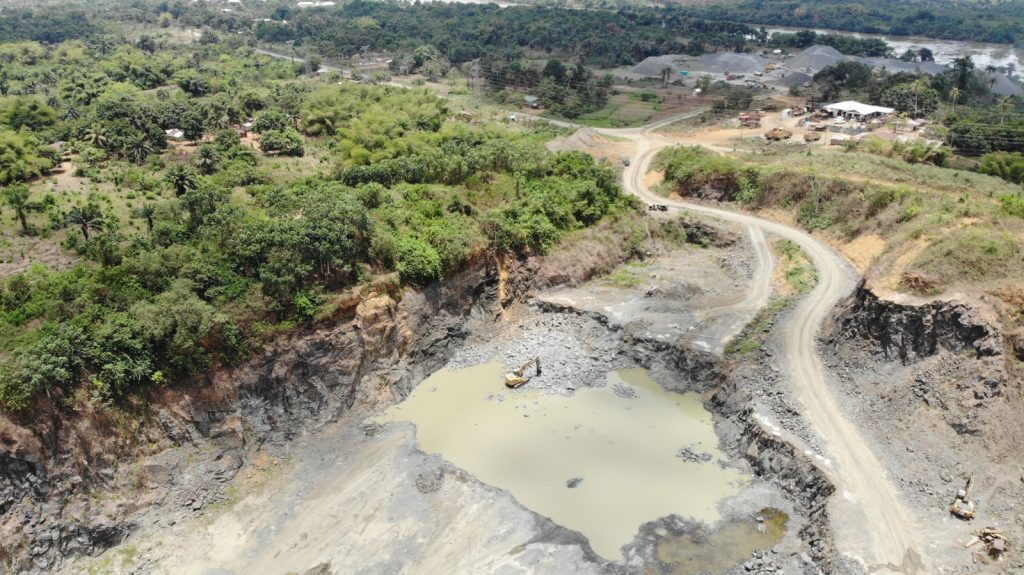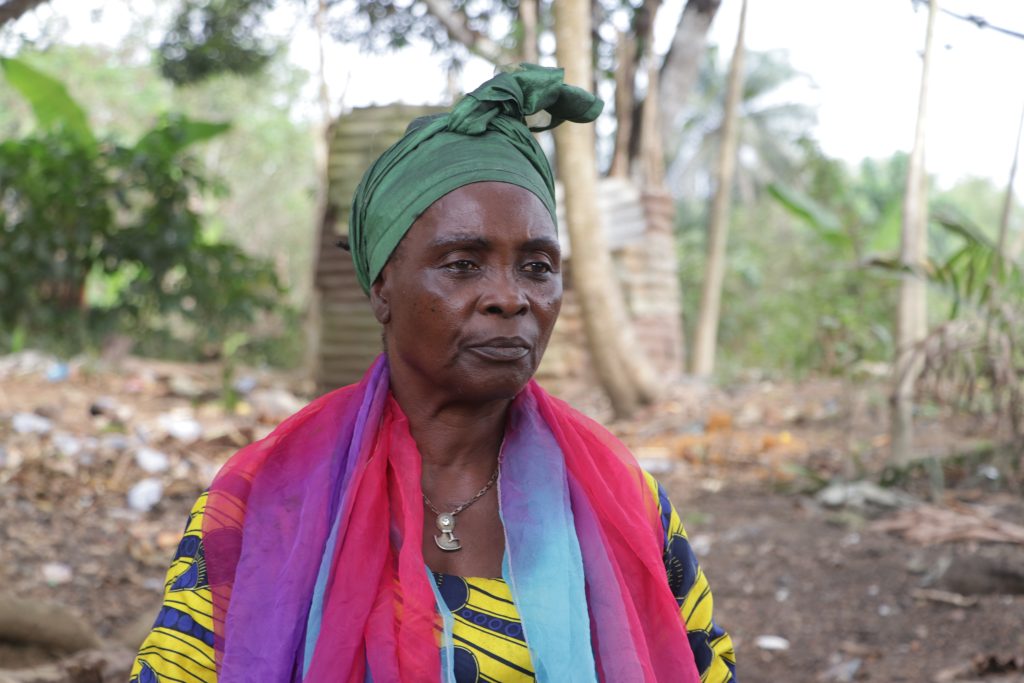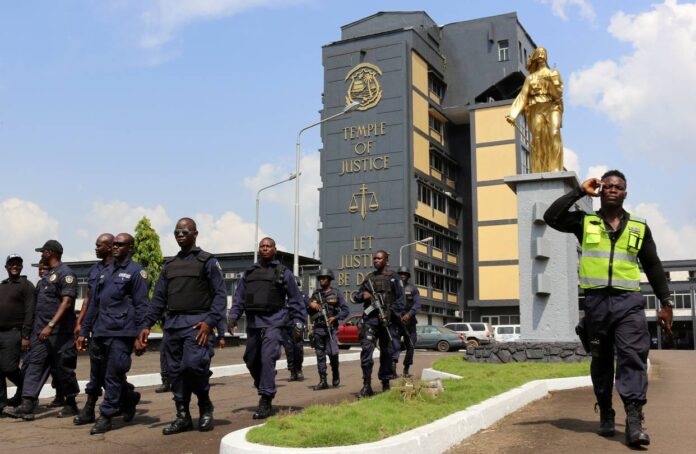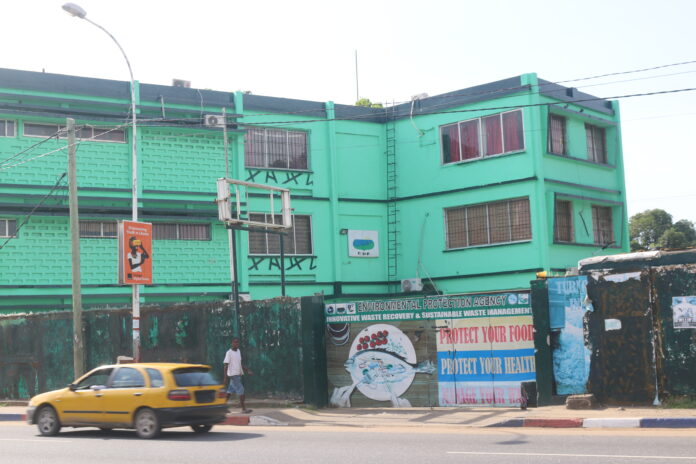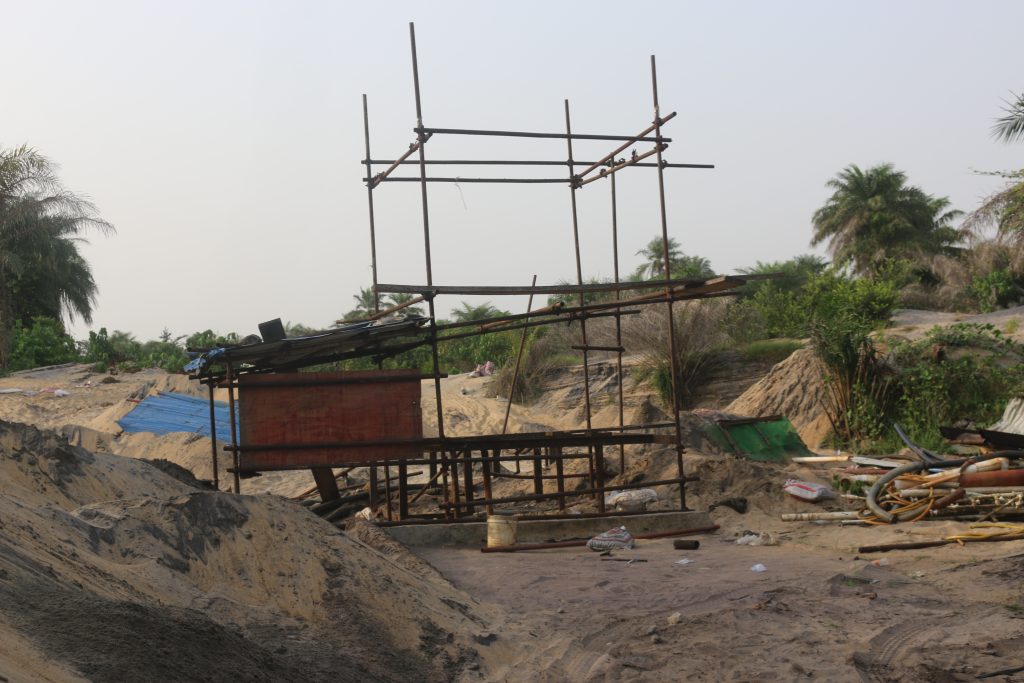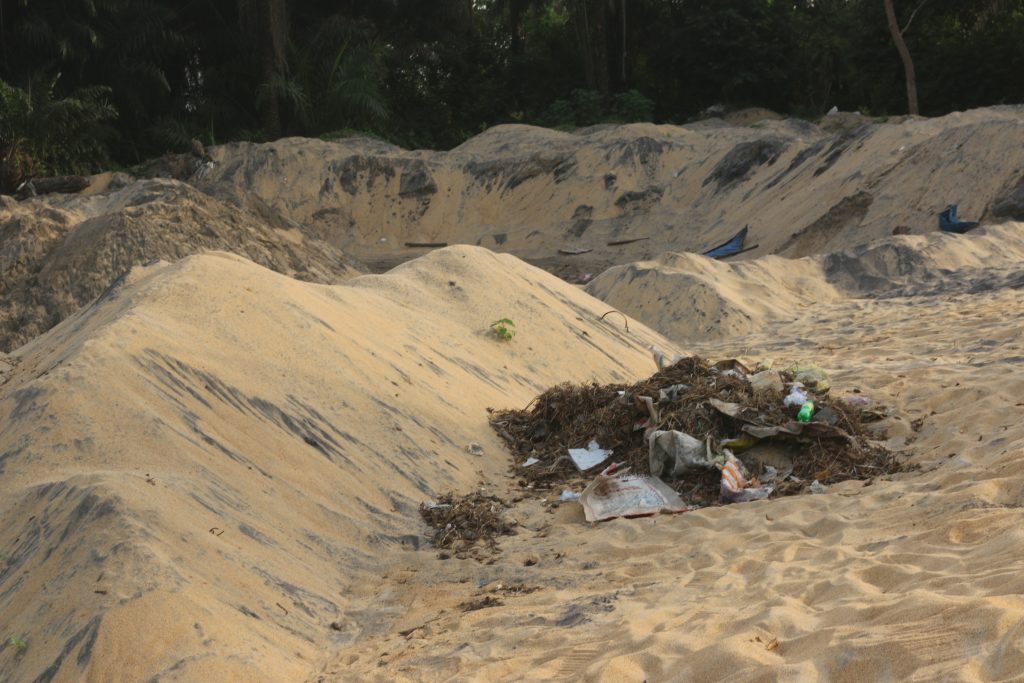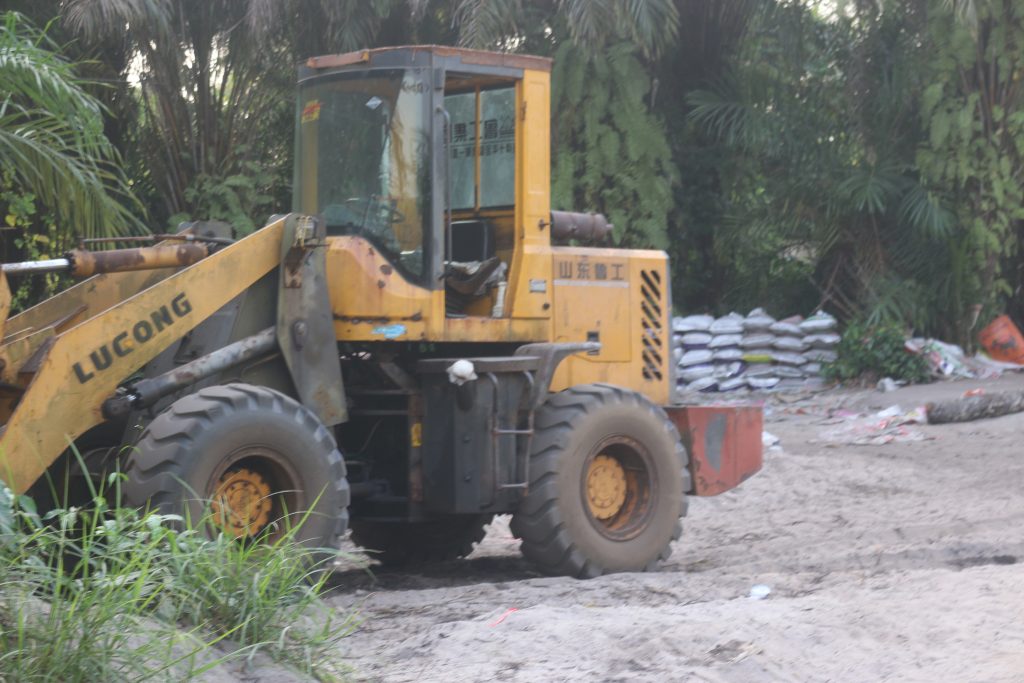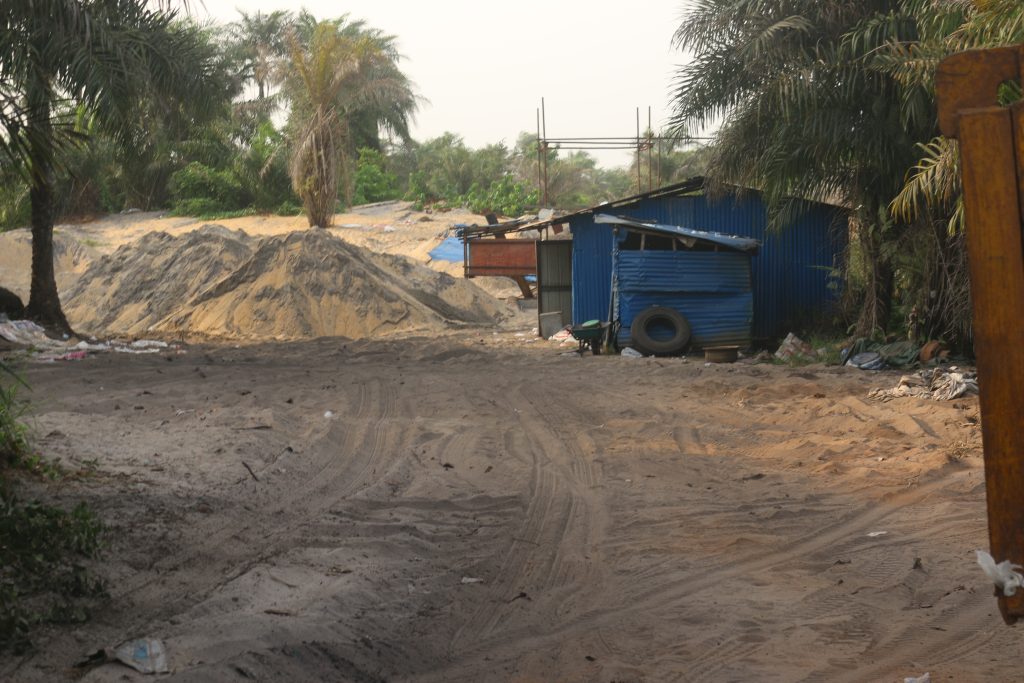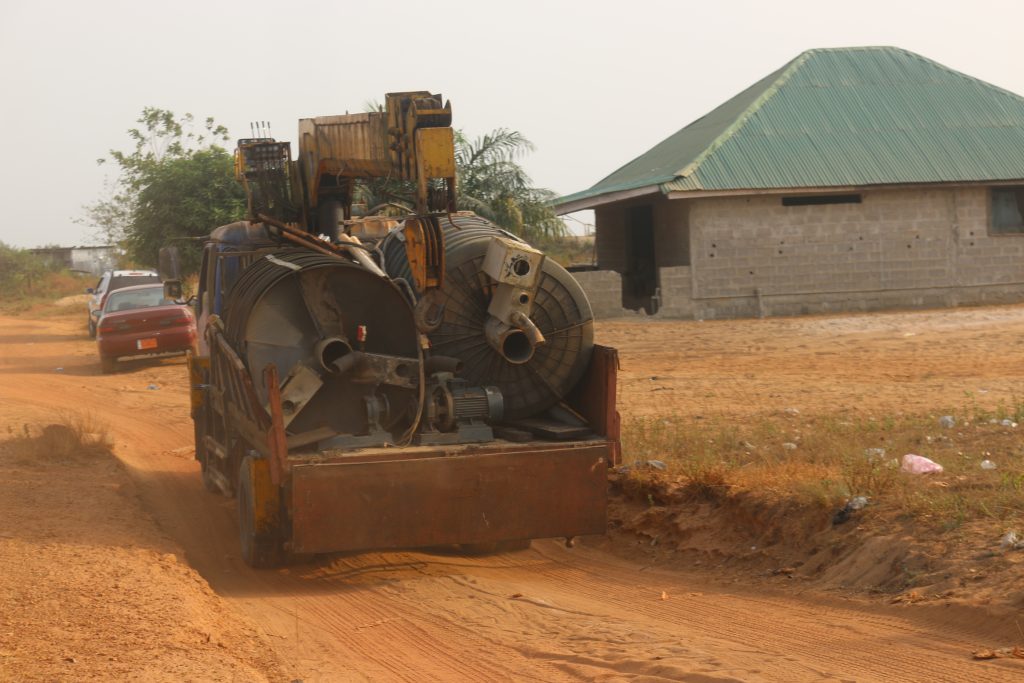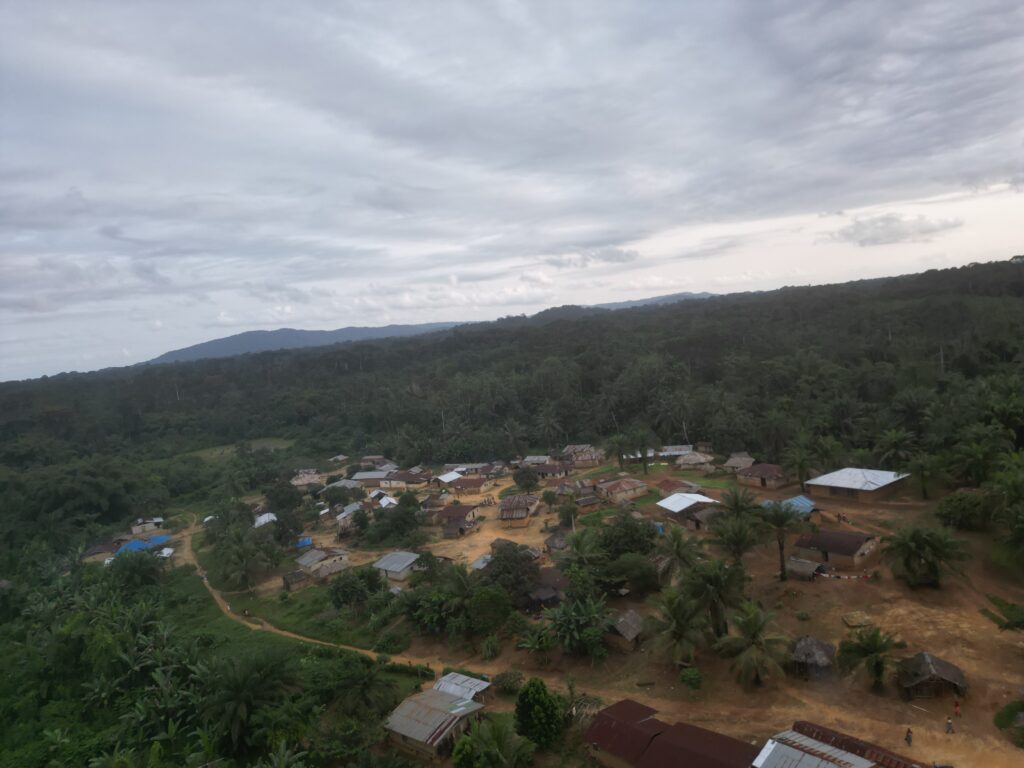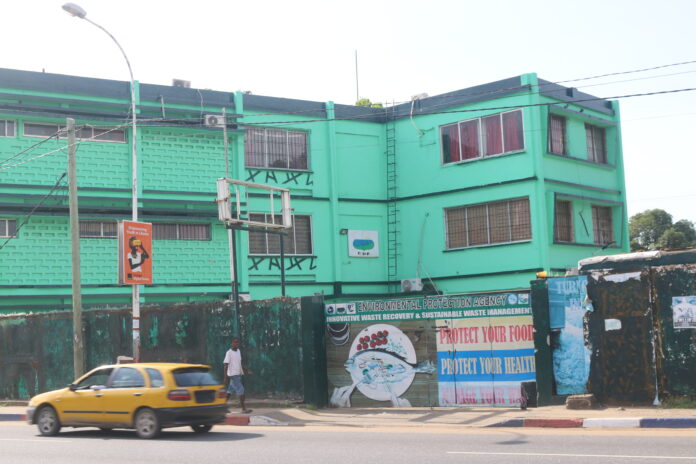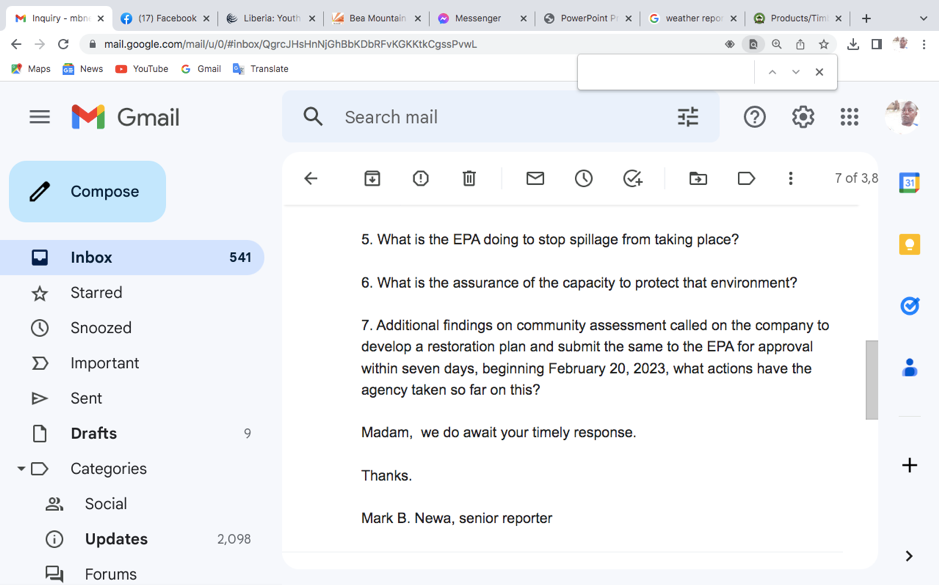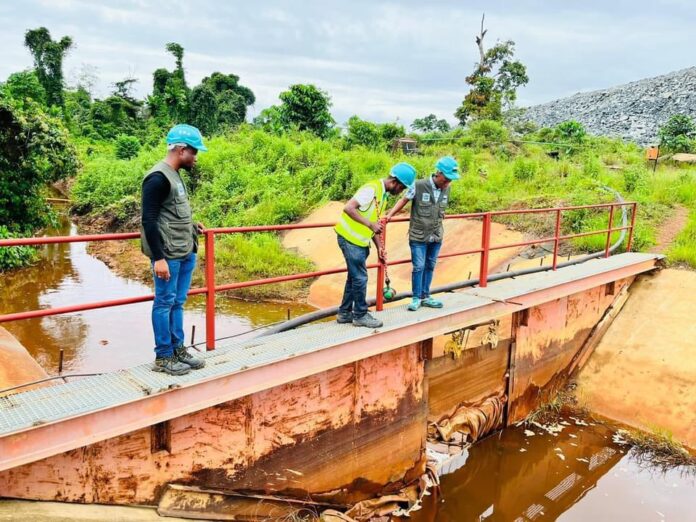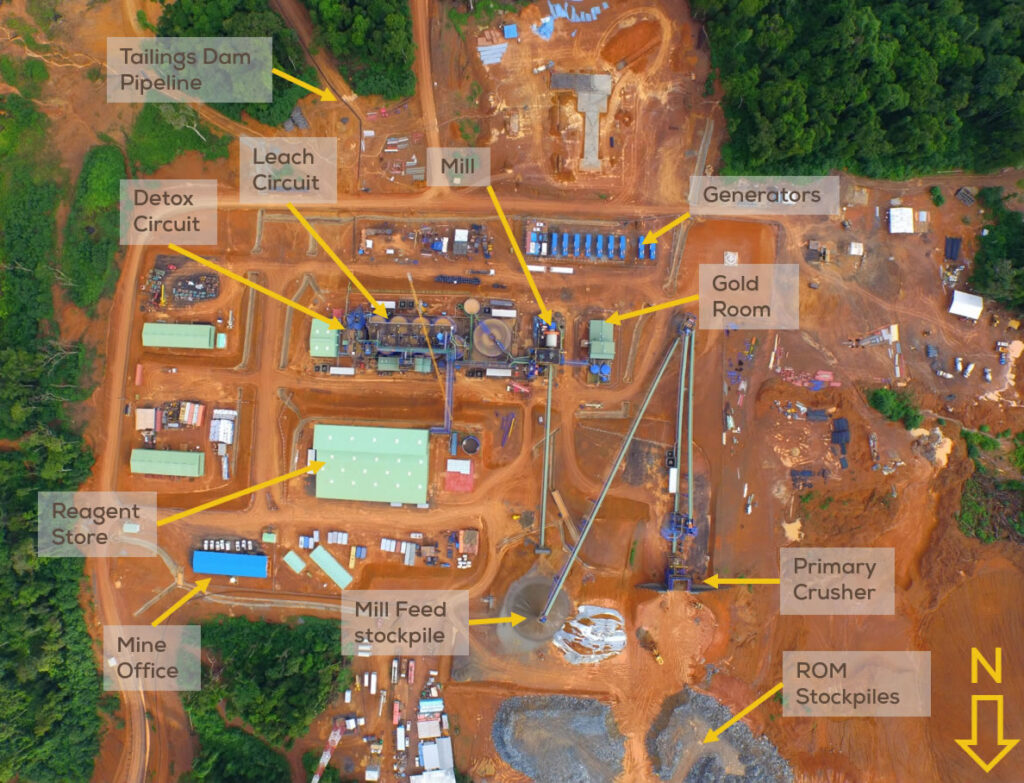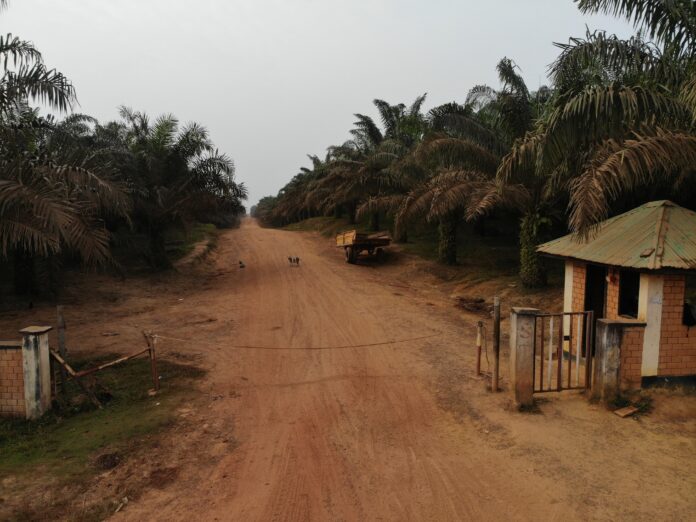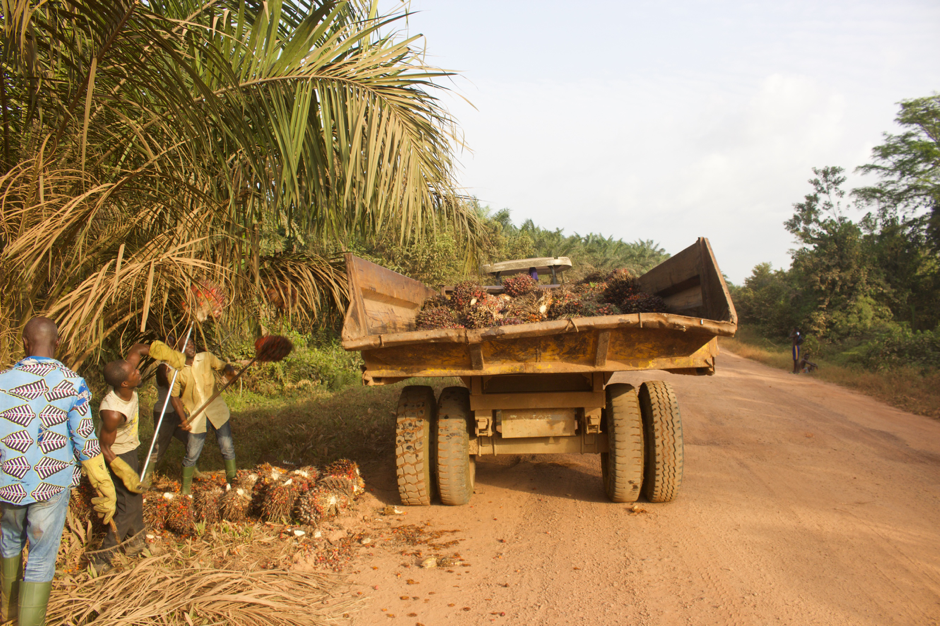Top: One of several sewage lines ArcelorMittal uses to dump feces in a wetland used by local farmers. The DayLight/Franklin Nehyalor
By Franklin Nehyalor
YEKEPA, Nimba County – ArcelorMittal Liberia (AML) has not completed an Environmental Protection Agency recommendation to restore a wetland the company degraded and polluted in Yekepa, according to an EPA report.
The steel company was mandated to reinstate 9.33 acres of wetland that it polluted with human feces, according to the report published in March this year but recently obtained by The DayLight.
The EPA investigation was commissioned after residents of Area Q, S1, and Liagbala—three communities mainly affected by the pollution—erected a roadblock in February this year for “the constant habit of (AML) dumping employees’ feces into their communities.”
The investigation corroborated the communities’ accusation. It found that the company’s sewage plant had contaminated groundwater in the area after two tests.
“The result of the analysis shows that iron, phosphate and e-coli were above permissible limits in both ground waters samples,” the EPA report said. E. coli for the Escherichia coli bacterium, iron and phosphate in water cause diarrhea, stomach cramps, occasional fever for people, and low dissolved oxygen for fish.
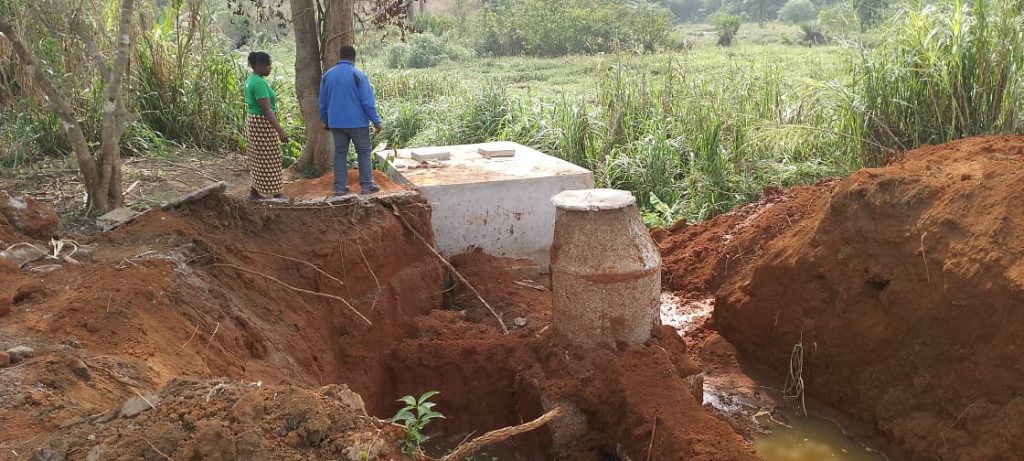
ArcelorMittal continues to violate EPA’s orders.
On April 17, 2024, about a month after the report, police arrested an ArcelorMittal tanker transporting 7,200 gallons of feces from Buchanan, Grand Bassa County to Yekepa, Nimba County.
In a statement seen by The DayLight, Prince Moore, AML’s tanker driver, told police that he was dispatched on April 16 to collect sewage waste from Buchanan to Yekepa by the transport office of ArcelorMittal.
But the EPA, the government agency that authorizes the transport of hazardous wastes or substances in or out of Liberia, said it was unaware of the transport. “The EPA did not give AML any permit to transfer sewage waste from Buchanan to Yekepa,” Danise Dodoo, EPA’s head of media and corporate communications, said in an email reply.
ArcelorMital’s failure to obtain approval to transport the sewage waste violates the Environmental Protection and Management Law of Liberia, punishable by a fine of not more than US$50,000 or imprisonment for a period not exceeding 20 years, or both.
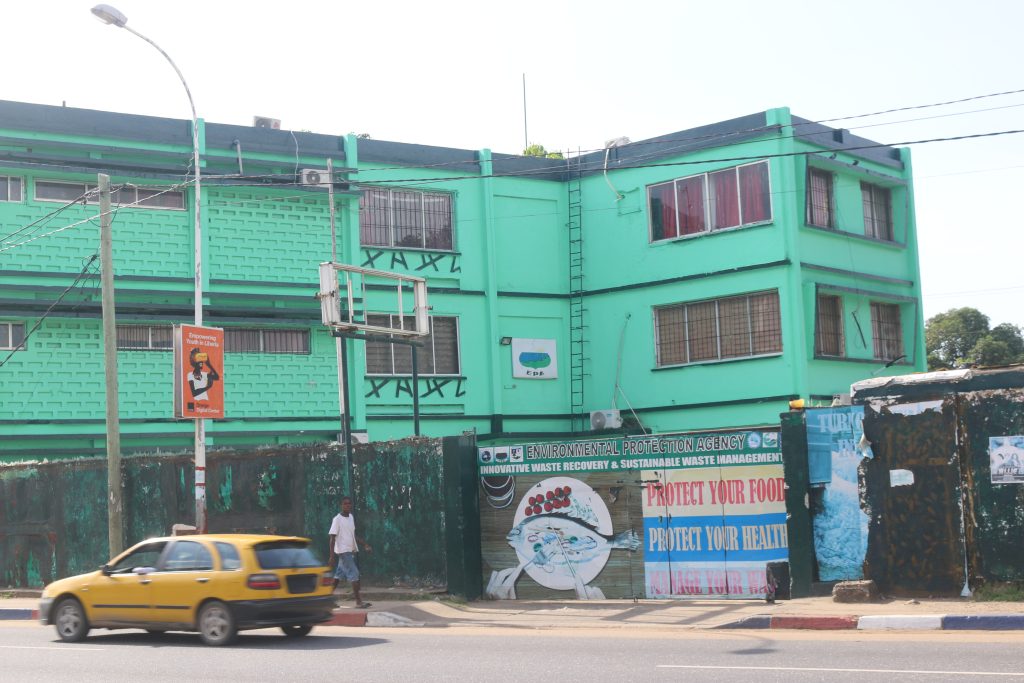
The EPA March 6 report was the second of two assessments by the agency regarding ArcelorMittal’s degradation of biodiversity in Nimba. In June 2022, an EPA assessment found the steel company guilty of environmental pollution and soil degradation in three communities in Yekepa after Nimba Mom-Waa, a local advocacy group that represents the affected communities, filed a complaint with the agency. The group had identified alleged environmental pollution and soil degradation and asked the EPA to investigate the matter.
After a thorough assessment, the EPA imposed a four-part fine on ArcelorMittal, totaling US$110,000 for breaking Liberia’s environmental laws.
The 2022 report also outlined six recommendations that should have been completed, including providing compensation packages to all farmers for damages caused to crops, alternative livelihoods for farmers using the polluted portion of the wetland and repair to damaged sewage lines. The recommendations included the construction of a water treatment plant and the provision of at least one treated drinking water source in each of the three affected communities.
But Alex Paye, the executive director of Nimba Mon-Waa, told this paper that the water treatment plant is nonfunctional and AML is yet to provide treated water units in the affected communities.
“The company still buys minerals [water] from an Indian company for its employees while our people suffer,” he said.
Restoration of the wetland should have been completed in a hundred days and the repair of broken sewage pipes from residential and office buildings hosting the company and its workers, in 60 days.
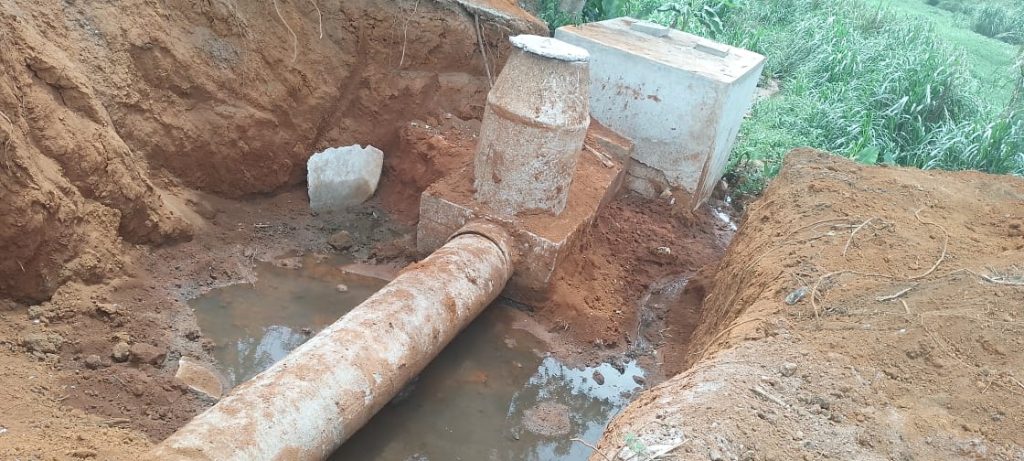
The March recommendation also included the construction of water treatment units for communities in sixty days, as of the date of the release of the March 6, 2024 report.
Friday, June 21, 2024, makes the count exactly 105 days since the recommendations.
Winston Daryoue, AML’s Communication Manager, said the company is making efforts to address these issues.
“ArcelorMittal Liberia is in conversation with local community members to address their queries in relation to the restoration of the wetland,” Winston wrote via email.
“We are presently carrying out the tendering process to hire a vendor for the construction of two solar water kiosks at Areas Q and S. Construction work will commence in due course.”
ArcelorMittal has implemented some of the recommendations. It paid US$16,583.53 to compensate 25 farmers whose crops were damaged by the pollution. It has also introduced alternative livelihood for those affected by the pollution and contracted a company to repair and maintain its sewage lines.
This story was a production of the Community of Forest and Environmental Journalists of Liberia (CoFEJ).

